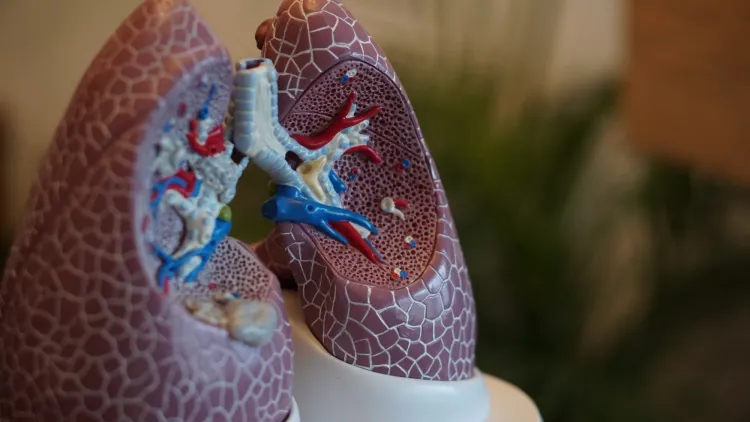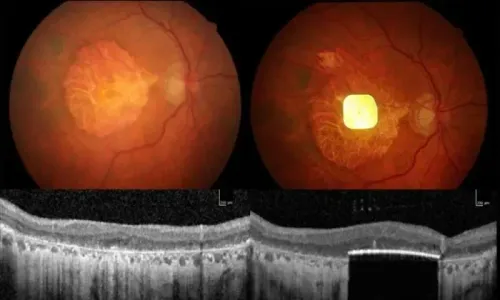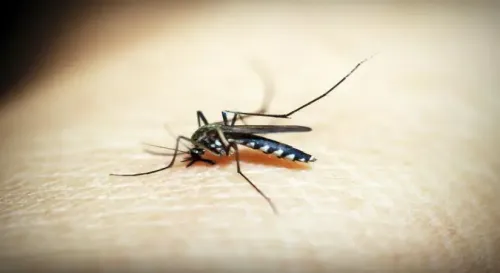Can a New Vaccine Safeguard Babies from Severe Lung Infections?

Synopsis
Key Takeaways
- Vaccination of pregnant women can significantly reduce hospital admissions for newborns.
- The RSV vaccine resulted in a 72% reduction in RSV-related hospitalizations.
- Receiving the vaccine more than 14 days before delivery enhances protection.
- Vaccination should ideally occur from 28 weeks of pregnancy.
- RSV poses serious health risks, making vaccination crucial.
London, July 20 (NationPress) Recent studies indicate that vaccinating pregnant women has been associated with a significant decrease in the number of newborns hospitalized due to a severe lung infection. Researchers observed that the respiratory syncytial virus (RSV) vaccine, which was rolled out across the UK in late summer 2024, resulted in a 72% reduction in hospitalizations for babies when their mothers received the vaccine.
The findings, published in the journal The Lancet Child and Adolescent Health, represent the first evidence of the vaccine's real-world effectiveness among pregnant women in the UK.
Experts highlight that increasing the vaccination rate among expectant mothers could significantly decrease the number of infants falling ill each winter, thereby alleviating the burden on hospitals.
RSV is a prevalent virus responsible for causing coughs and colds, yet it can lead to a serious lung infection known as bronchiolitis, which poses risks for infants, with some requiring intensive care. This virus is the leading infectious cause of hospitalization for babies both in the UK and worldwide.
The research team, consisting of experts from the Universities of Edinburgh and Leicester, examined 537 infants in England and Scotland who were admitted to hospitals with severe respiratory illnesses during the winter of 2024-2025, the inaugural season of the vaccine's implementation. Among them, 391 tested positive for RSV.
Mothers of infants who did not contract RSV were found to be twice as likely to have received the vaccine prior to delivery, with vaccination rates of 41% compared to 19% for mothers of RSV-positive infants.
Receiving the vaccine more than 14 days ahead of delivery yielded a greater protective benefit, showing a 72% reduction in hospital admissions compared to a 58% reduction for infants whose mothers were vaccinated at any point before delivery.
Experts recommend that vaccination should ideally occur as early as 28 weeks into pregnancy to maximize protective antibody transfer to the baby, although the jab can be administered up to the time of birth.









